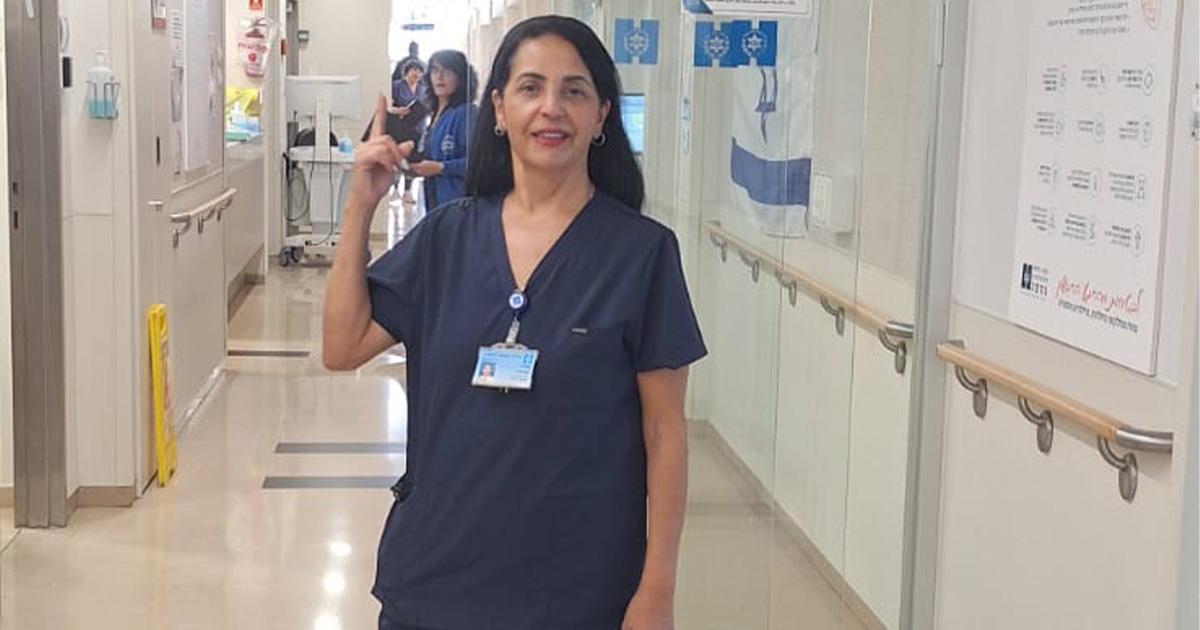By Rhoda Smolow
“For the laughter of the children,
For my own life breath,
For the abundance of food on this table, ...”
These are the first three lines of Rabbi Naomi Levy's "A Thanksgiving Prayer." Written pre-pandemic, the poem-prayer takes us back to a time (just a year ago) when, without thinking twice, we gathered with family and friends. Since then, many of us have lost loved ones; 250,000 people in the US have died from COVID-19. Too many face economic insecurity and food shortages.
This Thanksgiving, our gratitude carries a far greater weight, as our health, family, friends, the food before us and the religious liberty of our country all mean more to us now.
I'm grateful to be part of an organization that's playing an active role in fighting the pandemic, from the COVID research and clinical trials at our hospitals in Israel, to building a strong community across the United States, to giving youth opportunities to serve and thrive, to empowering women.
At Hadassah, we talk a lot about the power of women who do. But every day, men are actively helping Hadassah advance our mission, in the United States and in Israel.
As part of my Thanks-Giving, I'm giving a special shoutout to all the men who are proud to support Hadassah — and to support women — as donors, staff, Associates, advocates, partners and allies.
On Thursday, our family Thanksgiving table won't have as many beloved faces around it as in years past. But I know I need look no farther than across my table to see my husband, Craig, whose partnership and support have been ceaseless — for me and our family, and for Hadassah, which over four decades has often demanded my attention late at night, during dinners and on Sunday mornings.
Supreme Court Justice Ruth Bader Ginsburg, Hadassah member and model to us all, talked about how her husband had played a fundamental part — a supporting role — in her accomplishments: "I had a life partner who thought my work was as important as his," she once said, "and I think that made all the difference for me."
One of Justice Ginsburg's role models was Hadassah founder Henrietta Szold, the first woman to study at the Jewish Theological Seminary of America and the first woman to take the helm of the Jewish Publication Society. In 1912, she founded Hadassah, and it wasn't long before she found an ally and supporter in department store magnate Nathan Straus — co-owner of Macy's and of Abraham & Straus.
Nathan's brother and sister-in-law, Isidor and Ida Straus, died on the Titanic, choosing to give up rescue-boat seats so that younger passengers could survive. After their death, Nathan and his wife, Lina, turned to philanthropy, committed to saving the lives of others, like Ida and Isidor, playing a crucial role in Hadassah history as friend and collaborator of Henrietta, with whom he shared an unwavering devotion to improving health conditions in Palestine.
On January 18, 1913, Lina and Nathan Straus sailed to Palestine with nurses Rose Kaplan and Rae Landy, who set up a small public health station in Jerusalem to provide maternity care and treat trachoma, a dreaded eye disease rampant in the Middle East. That year, they saw 5,000 patients.
In 1921, Supreme Court Justice Louis D. Brandeis — like Szold and Straus, a Zionist who shared Szold's commitment to healing — donated $10,000 to Hadassah's anti-malaria efforts. This was one of many personal donations he would make to help Jewish and Arab communities in Palestine.
That work continues today as we face and fight unprecedented new challenges. Anyone who's met me knows how passionate I am about Hadassah's work — and about women's rights. I'm so grateful to all the men who support us in any way they can, just as men have played a fundamental role since our beginning.
Our shared commitment to healing our world, together, has helped us achieve so much already. This Thanksgiving, join me in saying thank you.



.svg)





